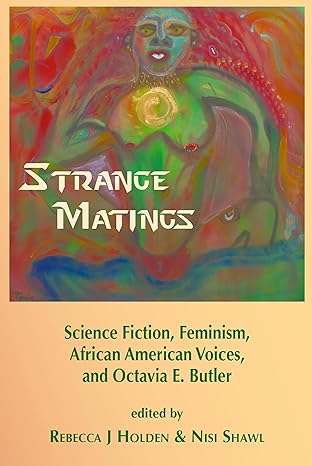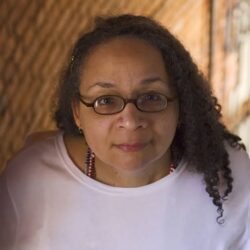by
A 2014 Locus Awards Finalist
Strange Matings: Science Fiction, Feminism, African American Voices, and Octavia E. Butler celebrates the work and explores the influence and legacy of the brilliant Octavia E. Butler. Author Nisi Shawl and scholar Rebecca J. Holden have joined forces to bring together a mix of scholars and writers, each of whom values Butler's work in their own particular ways. As the editors write in their introduction:
Strange Matings seeks to continue Butler's uncomfortable insights about humanity, and also to instigate new conversations about Butler and her work — conversations that encourage academic voices to “talk” to the private voices, the poetic voices to answer the analytic…. How did her work affect conceptions of what science fiction is and could be? How did her portrayals of African Americans challenge accepted assumptions and affect others writing in the field? In what ways did her commitment to issues of race and gender express itself? How did this dual commitment affect the emerging field of overtly feminist science fiction? How did it affect the perception of her work? In what ways did Butler inspire other writers and change the “face” of science fiction? How did she “queer” science fiction? In what ways did she inspire us and motivate us take up difficult subjects and tasks? In other words, what is her legacy?
This noteworthy anthology—published by a feminist small press in memory of Butler, an African-American science-fiction author—consists of a wide-ranging selection of sometimes-dense scholarly essays, highly readable reminiscences and personal essays, poems, correspondence, photographs, and interviews. Though she wasn't prolific, Butler (1947–2006) produced several important novels (Kindred, Lilith's Brood, Parable of the Sower) and short stories (“Blood Child,” “Speech Sounds”) that changed the genre of science fiction and helped empower many new SF writers of color. Highlights of this anthology include “Gambling Against History,” Susan Knabe and Wendy Gay Pearson’s queer reading of Kindred, Butler’s seemingly heterosexual time-travel/slave narrative; “The Spirit in the Seed,” writer, performer, and Ifa/Orisha priestess Luisah Teish’s heartfelt recollection of her discovery of Butler’s early novel Wild Seed; reminiscences by genre writers Steven Barnes, Tananarive Due, editor Shawl, and Nnedi Okorafor about what Butler and her work meant for their careers; and scholar Shari Evans’s “From ‘Hierarchical Behavior’ to Strategic Amnesia,” undoubtedly the most perceptive essay yet written on Fledgling, Butler’s final novel. Readers unfamiliar with the author’s fiction should start with her novels, but her many devoted fans will find this volume highly satisfying.
—Publishers Weekly, May 27, 2013
The book's bittersweet mix of joy and tears has the necessary and wonderfully cathartic quality of an Irish funeral. The book creates a space where fans of Butler's work can grieve together with those who knew her well and with those who only wish they did.... This jagged charge of shared, collective grief makes Strange Matings unlike any other scholarly book I can think of. Even the more academic essays frequently find themselves slipping into the rhetoric of personal witnessing.... The book, only half-academic, becomes another kind of strange mating that speaks to the difficulty of really caring about something, and someone, in a discursive field that pretends to an ideal objectivity and emotional detachment from one's research material—where "love" is at best an embarrassment to be left unspoken and at worse a cause for suspicion or alarm.
—Science Fiction Studies (2014)
Languages Available: English
Languages Available: English



